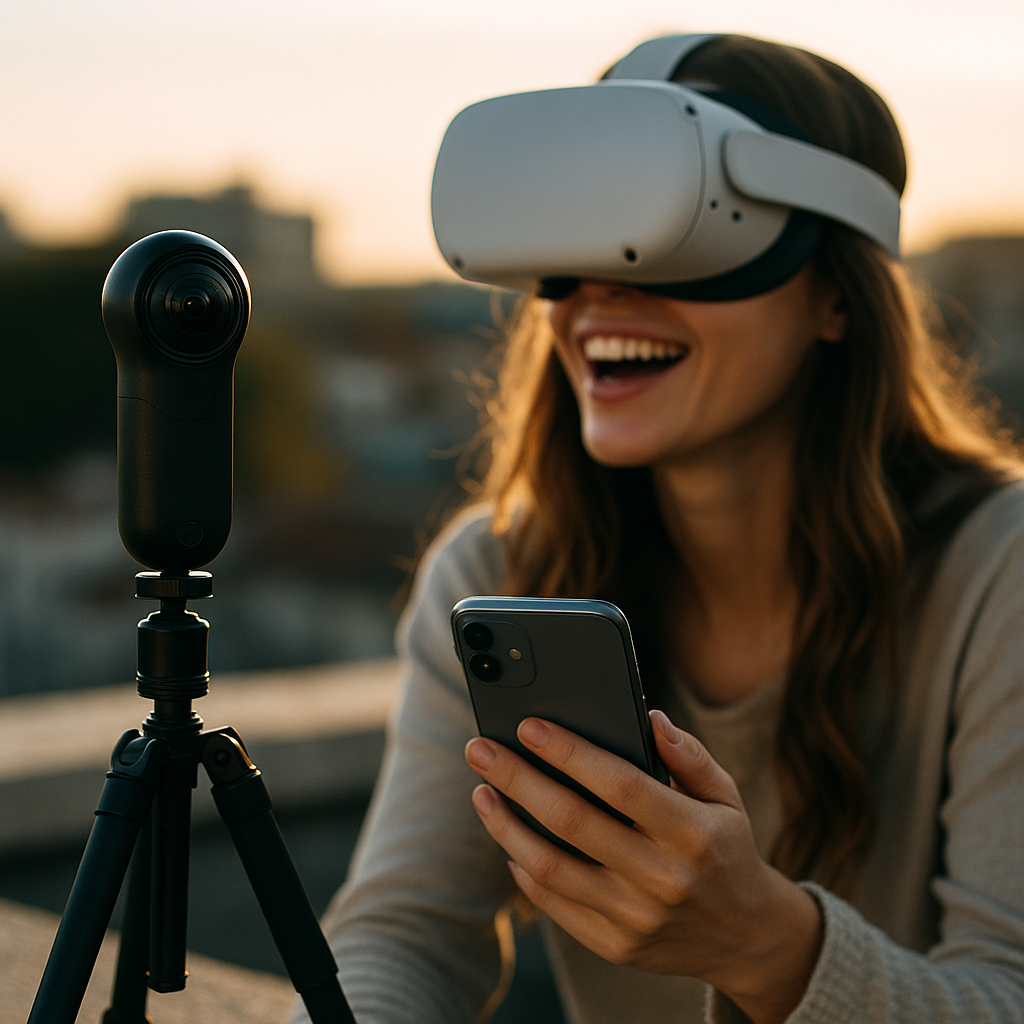360-degree video and VR content with influencers are transforming digital marketing as we enter 2025. These immersive formats allow brands to stand out with interactive experiences that drive engagement and trust. Curious about how virtual reality and influencer collaborations can impact your business? Let’s explore the strategies and opportunities that shape this powerful trend.
The Rise of 360-Degree Video in Influencer Marketing
360-degree video is quickly becoming a preferred medium for brands seeking heightened consumer interaction. Unlike standard video content, 360-degree video surrounds viewers with a panoramic scene, offering a sense of presence and agency. Influencers use this technology to give followers behind-the-scenes access, product tours, and event coverage in a way that feels genuinely immersive.
According to a 2025 study by GlobalWebIndex, 62% of consumers are more likely to trust a brand after experiencing it firsthand via virtual reality or 360-degree video. By leveraging influencers, brands are not only reaching wider audiences but also enhancing authenticity. Audiences can ‘step into’ the influencer’s world, increasing relatability and deepening brand connections.
How VR Content Expands Influencer Engagement
Virtual reality (VR) content allows influencers to create deeply interactive experiences that go far beyond traditional media. VR activations include virtual meet-and-greets, product try-ons, and branded mini-games, fostering unique relationships between influencers and their followers. As hardware like standalone VR headsets becomes more affordable in 2025, creators are integrating these tools into regular content schedules.
Key benefits of VR influencer content include:
- Enhanced storytelling capabilities
- Personalized product demonstrations
- Greater shareability due to “wow” factor
- Memorable brand experiences that drive word-of-mouth
This evolution enables marketers to move from passive advertising to active engagement, placing consumers at the center of branded narratives.
Crafting Authentic Collaborations: Influencer Selection & Strategy
The success of 360-degree video and VR influencer campaigns relies on selecting genuine collaborators. Brands must focus on influencers who align with their mission and are comfortable experimenting with emerging formats. Transparency remains vital—disclosure of partnerships and an emphasis on unpaid, organic experiences help maintain audience trust.
Effective influencer strategies for immersive content include:
- Co-creating content ideas for authenticity
- Inviting influencers to events or product launches in VR
- Providing hands-on training or resources for 360/VR production
- Measuring engagement rates and dwell times, not just clicks
Long-term partnerships, rather than one-off activations, foster credibility and make immersive formats feel less like advertisements and more like experiences.
Measuring Success: Analytics for 360-Degree and VR Content
Assessing the ROI of immersive influencer marketing in 2025 demands new metrics. Traditional indicators such as views and impressions remain important, but engagement depth, interaction rates, and audience sentiment offer a clearer picture of campaign impact.
Advanced analytics for immersive content include:
- Heat maps showing user focus points within 360-degree videos
- Session duration and return visits in VR experiences
- User-generated content inspired by VR activations
- Qualitative feedback through post-experience surveys
These insights allow marketers to refine their strategies and enhance user experience, ensuring campaigns resonate both emotionally and interactively.
Future Trends: The Evolution of Influencer VR Collaborations
The landscape for 360-degree video and VR influencer content is poised for dramatic growth in 2025. With augmented reality (AR) and mixed reality (MR) merging into mainstream platforms, the lines between digital and physical experiences continue to blur. Influencers are pioneering “phygital” events, where followers interact in both virtual and real-world spaces.
Emerging trends to watch include:
- Shoppable VR content allowing direct purchases inside experiences
- Social VR platforms enabling virtual community meetups moderated by influencers
- Expanded reach as 5G and Wi-Fi 7 infrastructure improve streaming quality
- Collaborations between micro-influencers and major brands for niche, hyper-personalized activations
As audiences crave richer, participatory digital encounters, brands that invest in immersive influencer marketing will stay ahead of the competition.
FAQs: 360-Degree Video and VR Content with Influencers
-
What do I need to experience 360-degree video or VR influencer content?
Most 360-degree videos work on smartphones, tablets, and desktops. For true VR content, a VR headset delivers the most immersive experience, but many activations offer non-headset options as well.
-
Are VR influencer campaigns expensive?
Costs can vary widely. While high-end VR productions require more investment, 360-degree video content is increasingly accessible. Many influencers and brands use affordable cameras and platforms to create engaging content at minimal expense.
-
How do brands measure the success of immersive influencer campaigns?
Brands use metrics such as viewer engagement, session duration, interactive heat maps, and participant feedback. These provide deeper insights into how users interact with immersive content compared to standard videos.
-
Do immersive formats increase consumer trust?
Yes. Research shows that immersive and interactive experiences foster stronger brand trust and loyalty by providing transparency and a sense of personal connection.
-
Can small brands leverage VR influencer content?
Absolutely. As VR technology becomes more accessible, brands of all sizes can partner with influencers to create unique, memorable branded experiences and reach targeted audiences in impactful ways.
Immersive formats like 360-degree video and VR content with influencers are revolutionizing digital marketing in 2025. With personalized, interactive experiences, brands can forge deeper loyalty and stand out in a crowded marketplace. By embracing this trend and focusing on authenticity, businesses unlock exciting new pathways to engage and inspire their audiences.
